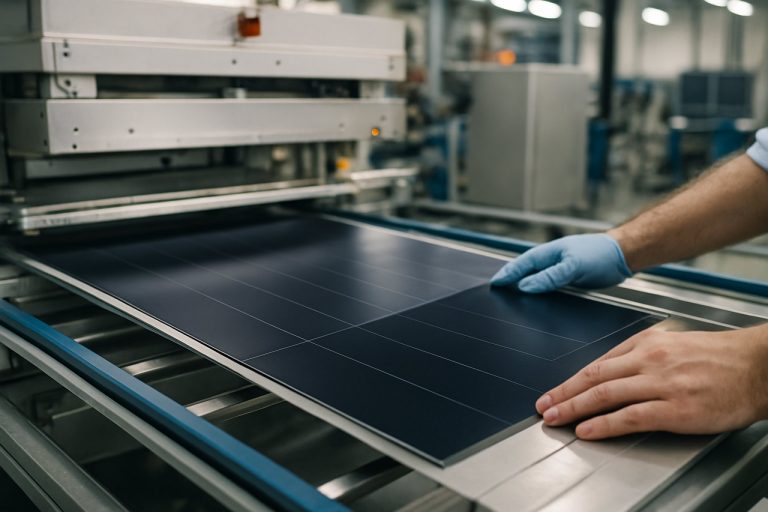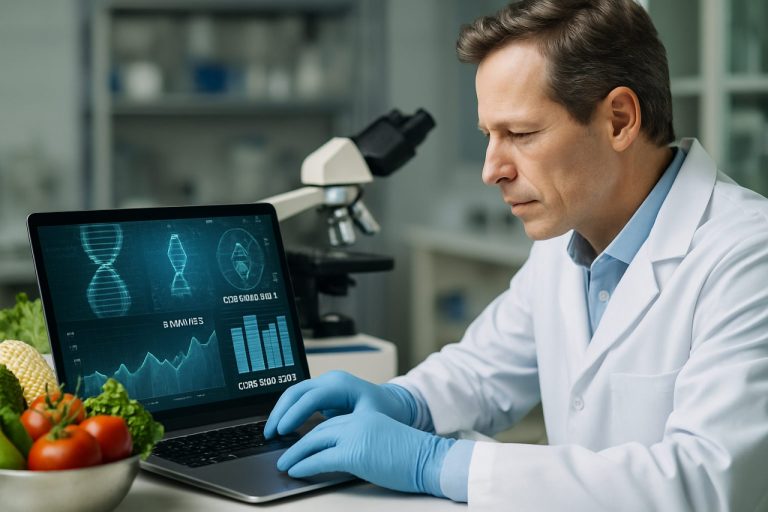
- The VA’s Assistive Technology Program creatively supports veterans in achieving independence despite severe injuries or chronic illnesses.
- The Richmond Office of Advanced Manufacturing developed the patented Cobra Utensil Holder, revolutionizing utensil use for veterans with limited mobility.
- This modular utensil holder accommodates standard flatware, allowing users to adjust angles for personalized comfort and dignity.
- The device was quickly prototyped and realized within a month, showcasing the power of 3-D printing and targeted design.
- Veterans contributed to the design process, ensuring the Cobra Utensil Holder meets specific daily living needs.
- The team at Richmond, led by Melissa Oliver and Brian Burkhart, continuously innovates to improve veteran care both domestically and globally.
- The project exemplifies the integration of passionate engineering and cutting-edge technology to restore veterans’ autonomy.
https://youtube.com/watch?v=-fuddGqjOMI
Imagine a world where the simple act of eating becomes an engineering challenge. For many veterans grappling with severe injuries or chronic illnesses, tasks like holding a spoon or feeding themselves are Herculean feats. At the heart of this battle to reclaim independence is the VA’s Assistive Technology Program, where cutting-edge innovation meets compassionate care.
Richmond’s Office of Advanced Manufacturing recently reached a pinnacle of ingenuity with the patenting of the Cobra Utensil Holder. This deceptively simple tool waives the constraints that once bound veterans, offering a new lease on autonomy by enabling greater ease in handling everyday utensils.
The inception of this clever device arose from a simple plea: an occupational therapist, striving to help a veteran regain independence, highlighted the inability of existing products to meet specific needs. With standard adaptive utensils falling short, the Richmond VA Medical Center team, led by visionary leaders like Melissa Oliver and Brian Burkhart, stepped in to fill the gap. Their collaborative process began with prototypes fashioned from thermoplastic—a tactile exploration of angles to match the unique biomechanics of veterans with limited hand and arm mobility.
What separates the Cobra Utensil Holder from its predecessors is its revolutionary modular design, featuring slots that accommodate common flatware. This remarkable approach allows users the freedom to adjust angles and comfortably use their preferred spoons or forks. By mimicking familiar dining rituals, the device sheds the hospital-like aura typically associated with adaptive tools, offering veterans not just functionality, but dignity.
The swift journey from conceptual mock-up to reality—achieved in less than a month—highlights the prowess of 3-D printing technology matched by the team’s expertise. Yet, beyond technology, it’s the personalized feedback process that polishes each design iteration. Veterans become active participants in refining tools to suit their personalized needs, ensuring that the final product is not just a medical aid, but a piece of their everyday lives.
Richmond’s assistive technology team, leveraging digital wizardry from its office of advanced manufacturing, submits numerous innovations annually. Guided by the Veterans Affairs Technology Transfer Program, these patents promise both domestic benefits to veterans and far-reaching impact across the globe.
Unwavering in their dedication, the team at Richmond—well-versed in both dreams and tangible solutions—continues to push the envelope of what’s possible. From sculpting highly personalized medical devices to tweaking infrastructure components, their imprint touches every corner of veteran care and hospital operations.
Each success is a testament to the collaborative resolve of professionals like Melissa Oliver and Brian Burkhart, who intertwine passion with engineering to deliver unprecedented solutions. It’s this fusion of heart and technology that transforms challenges into stepping stones, empowering veterans to regain their sense of freedom and reintegrate with the grace, confidence, and dignity they deserve.
Uncovering the Transformative Impact of the Cobra Utensil Holder on Veteran Independence
Introduction
For many veterans with severe injuries or chronic illnesses, reclaiming independence in daily tasks like eating can be deeply challenging. The VA’s Assistive Technology Program is at the forefront of addressing these challenges with innovation and empathy. A prime example of this initiative is the newly patented Cobra Utensil Holder, developed by Richmond’s Office of Advanced Manufacturing. This device exemplifies how engineering ingenuity can significantly enhance the quality of life for veterans.
Insights & Predictions
Innovative Design and Flexibility
The Cobra Utensil Holder stands out with its unique modular design, allowing veterans to adjust the angles of their utensils. This adaptability ensures that each user can tailor the device to their specific needs, accommodating various levels of dexterity and strength. The holder works seamlessly with everyday flatware, integrating familiar dining experiences and thus reducing the hospital-like feel often associated with adaptive utensils.
Real-World Use Cases
For veterans who have suffered injuries limiting their hand and arm mobility, the Cobra Utensil Holder offers a practical solution. The ease of customization allows users to maintain dignity and autonomy during meal times, contributing to improved mental health and self-esteem.
Development and Personalization
The journey from concept to production was notably rapid, thanks to 3-D printing technology. The Richmond team prioritized veteran feedback in the design process, ensuring each iteration met users’ needs more effectively. This partnership with veterans ensures the device is not only functional but also an integral part of their daily life.
How-To Steps & Life Hacks
1. Personalize Your Grip: Adjust the holder by sliding your preferred utensil into the provided slots and determining the best angle for maximum comfort and efficiency.
2. Practice Makes Perfect: New users may benefit from practicing with different settings to find the ideal configuration. Over time, this experimentation helps find the perfect fit.
3. Maintenance Tips: Regularly clean the holder with warm soapy water, ensuring hygiene and longevity of the product.
Market Forecasts & Industry Trends
The success of the Cobra Utensil Holder reflects a growing trend in personalized medical devices. As 3-D printing technology advances, we can expect a surge in customized adaptive tools across the healthcare sector—impacting not just veterans, but a larger population with varied needs.
Reviews & Comparisons
The Cobra Utensil Holder’s flexibility and user-friendly design set it apart from existing adaptive utensils. While traditional tools often require users to adjust to their fixed forms, the Cobra Holder adapts to the user, offering a personalized experience that preserves the dignity of daily rituals.
Controversies & Limitations
While the Cobra Utensil Holder has been widely celebrated, some potential users might find it challenging to afford such specialized equipment without VA support. Exploring insurance coverage and VA assistance programs can help mitigate costs.
Actionable Recommendations
– For Veterans and Caregivers: Engage with the VA’s Assistive Technology Program to explore eligibility and access to tools like the Cobra Utensil Holder.
– Engage in Community Feedback: For those using the holder, providing feedback to developers can lead to enhancements benefiting a broader user base.
– Stay Informed: Keep an eye on industry trends for updates on innovative devices through reliable sources like TechCrunch and Mashable.
This seamless integration of technology and personalized care underscores the importance of fostering innovation that prioritizes user experience and dignity, particularly for communities such as veterans navigating life post-injury.



